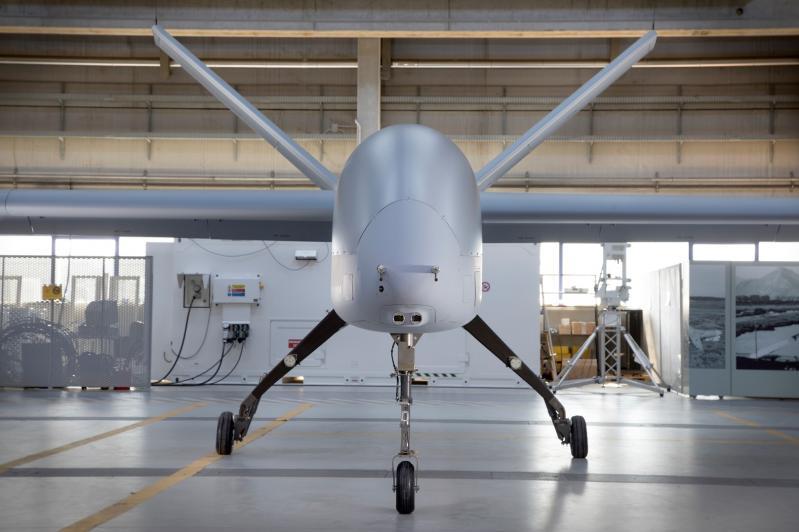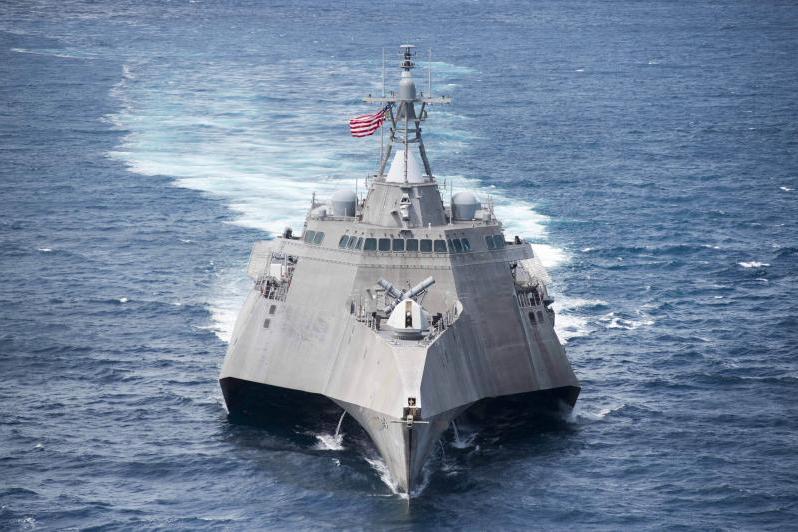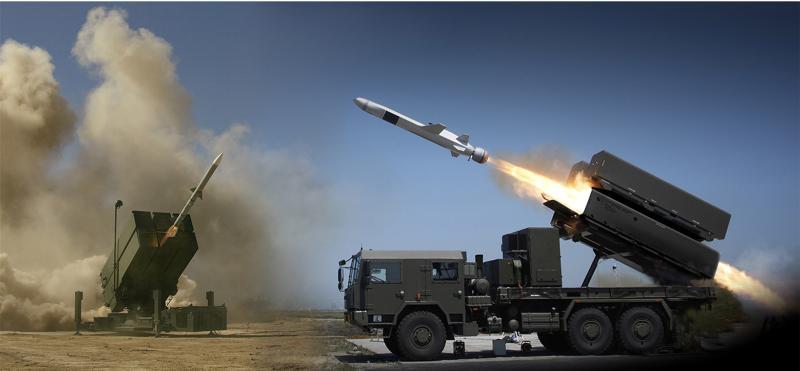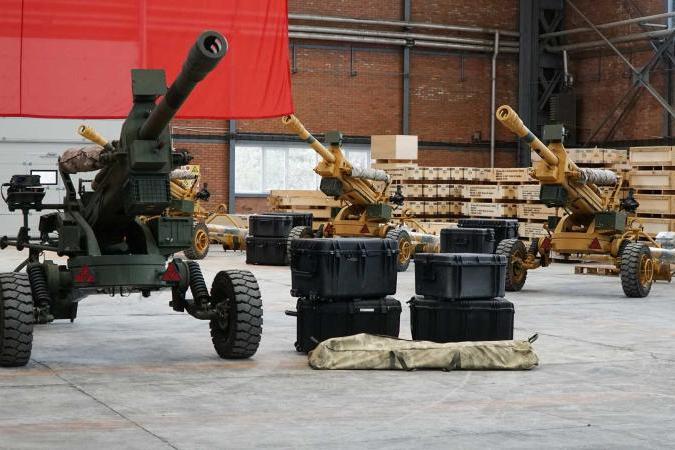Falco Xplorer: persistent, multi-sensor strategic surveillance
Falco Xplorer is Leonardo’s largest-ever Remotely-Piloted Air System (RPAS). It features a payload capacity of 350kg, more than 24 hours flight time and a satellite communications capability for beyond-radio-line-of-sight operations, all within a 1.3 ton maximum take-off weight (MTOW). This high capacity of payload on a platform of such relatively low size/weight is unique in the market. There are a number of countries which are looking to procure persistent, multi-sensor assets or services for strategic surveillance and Leonardo is confident that the Falco Xplorer can be tailored to meet many of these individual requirements.
Important to note is that the Falco Xplorer has been designed from the ground-up to access the widest possible market. It is undergoing certification for flight in non-segregated airspace, meaning Leonardo will be able to pitch it to civil customers such as coast guards and emergency responders as well as the international military market. Because the Falco Xplorer system is entirely designed and manufactured in Europe, it is not subject to International Traffic in Arms Regulations (ITAR) restrictions and its technical characteristics place it within the Missile Technology Control Regime (MTCR) class II category. Together, these make the Falco Xplorer readily exportable around the world.
It is Leonardo’s regular engagement with customers employing the Company’s original Falco and its successor the Falco Evo which prompted the development of the Xplorer: some customers noted a requirement for the mission benefits brought by a higher capacity for payloads and longer endurance. In designing the new system, Leonardo has taken into account both this feedback and the requirements from customers, among which Italian ones have had a prominent position.
The trend Leonardo is seeing in the marketplace is for government institutions, not necessarily military, to require this kind of capability. This is especially true in the service domain, where the Company sees a strong pull for its ‘drones as a service’ model from non-military government and civil customers. This is important because Leonardo is not only offering Falco Xplorer as a platform for sale, but also as a managed service, similar to what the Company is currently providing for UN in support to their peacekeeping mission and what Leonardo provided to the European Frontex agency with the Falco Evo. Under this model Leonardo owns and operates the Falco, its payloads, ground control station etc and provides actionable information to the customer.
A significant programme of testing has already taken place, using both high fidelity simulators, ground and flight testing of the Falco Xplorer aircraft. The Falco Xplorer behaved even better than predicted during its first flights. The flights were also the first good opportunity to collect data which can now be re-introduced to the Company’s modelling to improve the simulations, all of which contributes to continuing to develop the Xplorer in a cost-effective manner.
There are a series of further flight campaigns which will assess the aircraft’s full range of capabilities including its integrated sensor system. These campaigns will also certify the Falco Xplorer against NATO’s airworthiness STANAG 4671, dramatically expanding the territory over which it can operate.
The baseline ‘Block 10’ equipment fit of the Falco Xplorer takes advantage of Leonardo’s world-class in-house electronics portfolio to offer a comprehensive Intelligence, Surveillance and Reconnaissance (ISR) capability over land and sea. This high level of integration has a dual benefit for customers who will be able to acquire a highly capable and effective system at a competitive price.
The platform will come equipped with a Gabbiano T-80 surveillance radar, hi-resolution electro-optical turret, SAGE electronic intelligence (ELINT) system and an automatic identification system (AIS) for maritime use. The sensors will be integrated through Leonardo’s powerful mission management system, which draws on the Company’s experience in both the manned and unmanned domains and includes protection from cyber-attacks as standard under the Company’s ‘secure by design’ philosophy. Leonardo can also flexibly modify the sensor suite in-line with customer requirements, including integrating third-party sensors.
The platform’s Ground Control Station (GCS) allows operators to control the aircraft and its sensors and incorporates data exploitation tools, enabling the dissemination of useful information to wider C5I systems. It also provides mission data analysis, mission planning, training and simulation capabilities.












